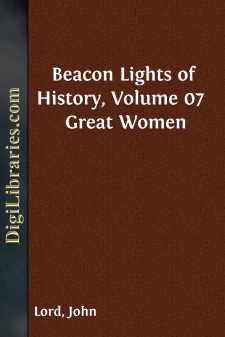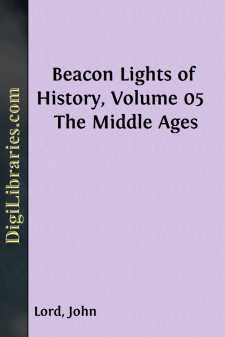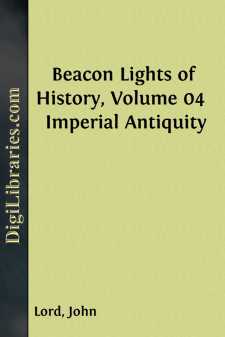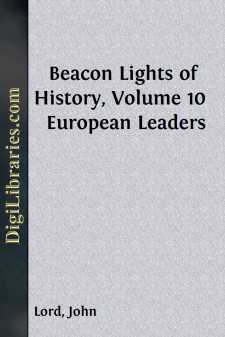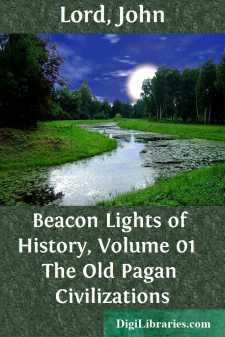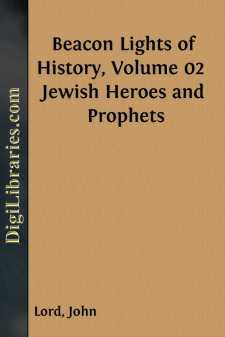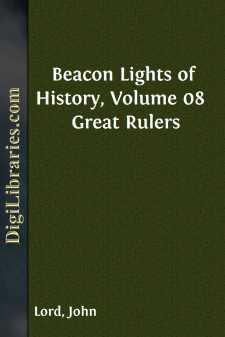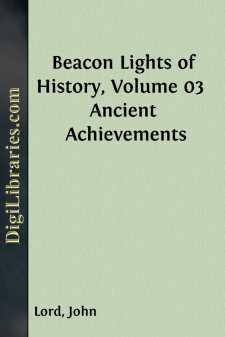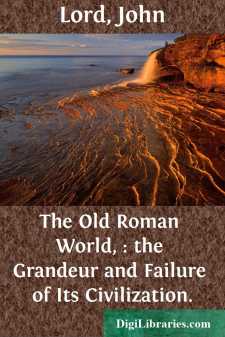Categories
- Antiques & Collectibles 13
- Architecture 36
- Art 48
- Bibles 22
- Biography & Autobiography 813
- Body, Mind & Spirit 142
- Business & Economics 28
- Children's Books 15
- Children's Fiction 12
- Computers 4
- Cooking 94
- Crafts & Hobbies 4
- Drama 346
- Education 46
- Family & Relationships 57
- Fiction 11828
- Games 19
- Gardening 17
- Health & Fitness 34
- History 1377
- House & Home 1
- Humor 147
- Juvenile Fiction 1873
- Juvenile Nonfiction 202
- Language Arts & Disciplines 88
- Law 16
- Literary Collections 686
- Literary Criticism 179
- Mathematics 13
- Medical 41
- Music 40
- Nature 179
- Non-Classifiable 1768
- Performing Arts 7
- Periodicals 1453
- Philosophy 64
- Photography 2
- Poetry 896
- Political Science 203
- Psychology 42
- Reference 154
- Religion 513
- Science 126
- Self-Help 84
- Social Science 81
- Sports & Recreation 34
- Study Aids 3
- Technology & Engineering 59
- Transportation 23
- Travel 463
- True Crime 29
Beacon Lights of History, Volume 07 Great Women
by: John Lord
Description:
Excerpt
BEACON LIGHTS OF HISTORY
HÉLOÏSE.
* * * * *
A.D. 1101-1164.
LOVE.
When Adam and Eve were expelled from Paradise, they yet found one flower, wherever they wandered, blooming in perpetual beauty. This flower represents a great certitude, without which few would be happy,—subtile, mysterious, inexplicable,—a great boon recognized alike by poets and moralists, Pagan and Christian; yea, identified not only with happiness, but human existence, and pertaining to the soul in its highest aspirations. Allied with the transient and the mortal, even with the weak and corrupt, it is yet immortal in its nature and lofty in its aims,—at once a passion, a sentiment, and an inspiration.
To attempt to describe woman without this element of our complex nature, which constitutes her peculiar fascination, is like trying to act the tragedy of Hamlet without Hamlet himself,—an absurdity; a picture without a central figure, a novel without a heroine, a religion without a sacrifice. My subject is not without its difficulties. The passion or sentiment I describe is degrading when perverted, as it is exalting when pure. Yet it is not vice I would paint, but virtue; not weakness, but strength; not the transient, but the permanent; not the mortal, but the immortal,—all that is ennobling in the aspiring soul.
"Socrates," says Legouvé, "who caught glimpses of everything that he did not clearly define, uttered one day to his disciples these beautiful words: 'There are two Venuses: one celestial, called Urania, the heavenly, who presides over all pure and spiritual affections; and the other Polyhymnia, the terrestrial, who excites sensual and gross desires.'" The history of love is the eternal struggle between these two divinities,—the one seeking to elevate and the other to degrade. Plato, for the first time, in his beautiful hymn to the Venus Urania, displayed to men the unknown image of love,—the educator and the moralist,—so that grateful ages have consecrated it by his name. Centuries rolled away, and among the descendants of Teutonic barbarians a still lovelier and more ideal sentiment burst out from the lips of the Christian Dante, kindled by the adoration of his departed Beatrice. And as she courses from star to star, explaining to him the mysteries, the transported poet exclaims:—
"Ah, all the tongues which the Muses have inspired could not tell the thousandth part of the beauty of the smile of Beatrice as she presented me to the celestial group, exclaiming, 'Thou art redeemed!' O woman, in whom lives all my hope, who hast deigned to leave for my salvation thy footsteps on the throne of the Eternal, thou hast redeemed me from slavery to liberty; now earth has no more dangers for me. I cherish the image of thy purity in my bosom, that in my last hour, acceptable in thine eyes, my soul may leave my body."
Thus did Dante impersonate the worship of Venus Urania,—spiritual tenderness overcoming sensual desire. Thus faithful to the traditions of this great poet did the austere Michael Angelo do reverence to the virtues of Vittoria Colonna....


